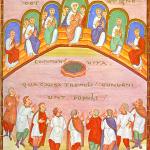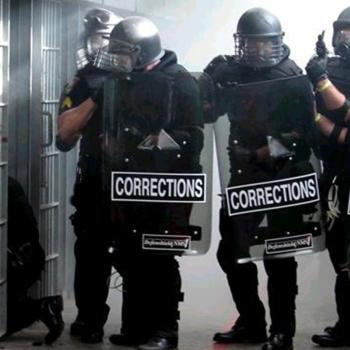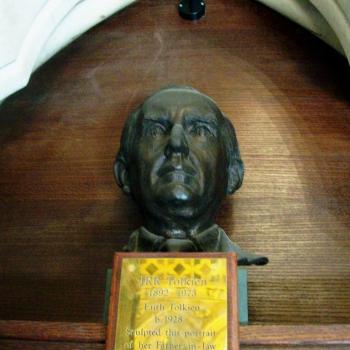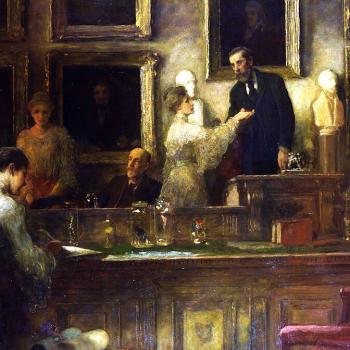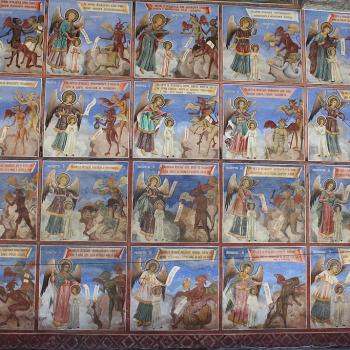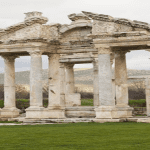
Tradition is important for religion, and therefore, for the Christian faith; it helps make sure that the collective wisdom and knowledge of the faithful does not get lost, and in doing so, prevent many of the mistakes of the past from being repeated in the future. Nonetheless, tradition is a double-edged sword because it can also be used to pass down bad notions and practices which then become confused with the faith itself. Indeed, those who control what is disseminated can and often do insert ideas, sometimes on purpose, that are purely theoretical, making those who are taught them believe what they are taught are essential to the faith itself. An example of this is the notion of limbo, a teaching which many came to believe was a part of official Catholic doctrine rather than being a particular theological opinion used to explain what happens to infants, or righteous pagans, who die without baptism. What is worse than theological opinions which are not heretical but not necessarily true, are notions which are not properly Christian, indeed, which counter some element of the Christian faith, being passed down as Christian. We can see this in the way many Christians have taken up the cause of capitalism, thinking it is purely Christian and to be defended, leading them to also judge the value of others in relation to how much money they make. Finally, cultural expressions of the faith, which are important, sometimes become confused as representing the fullness of the faith, so that people expect particular local traditions to be universalized and made absolute, denouncing those who do not do so. We can see this in the way many confuse the Latin liturgical tradition and the culture which surrounded it after the Council of Trent as being univocal with the faith itself: they claim that one tradition, one cultural expression, is universal, representing the way things have always been and the way things must always be, so that anyone who does not follow them are said to follow a different or new religion.
It is important to recognize tradition and its role without becoming trapped by the way the faith has been handed down by it. Tradition should be living, able to adapt and change, and to be purified when necessary; sadly, many think that once something is set up in tradition, it becomes set in stone and must be legalistically followed afterward. Those who do this undermine the Christian faith, reducing it to its conditionally-established human expression, undercutting the mystery which lies behind it, a mystery which allows for, indeed, requires a variety of expression to represent it. This is why, tradition must be carefully engaged, lest, as Ficino said, it becomes a trap which undermines the faith: “Furthermore, ancestral custom and time-honoured tradition easily trap everyone in any error whatsoever.”[1]
Tradition should be free to develop so it can meet the needs of people in every age, and in every cultural situation. This is what it means for tradition to be living, for this makes sure Christianity does not come to a dead end, unable to engage the people of the present. Those who engage tradition and develop it should understand that they are engaging the great mystery of the faith, a mystery which will transcend all conventional representations of it:
Living Tradition presupposes a variety of local, human traditions, which all stand under the judgment of the One Catholic Truth: they are legitimate and fruitful as long as they conform to it and do not exclude all other legitimate expressions of the same Orthodoxy.[2]
Sadly, when development happens, when new expressions emerge, we find many try to push back against those developments and force people to follow older expressions of the faith. In this way, Christianity, which is meant to have us set free, becomes a trap which binds us and takes away our authentic freedom. Those who do this do not acknowledge the errors of the past, indeed, they idolize the past so much they turn it into an error-free utopia, which is the only way they can justify rejecting anything which differs from the way things were done before. Such conservatism conserves more than the faith, but the sins of the past, which is why Bulgakov suggested that it tends to undermine the prophetic call to penance:
Does not this “repent” call us to new achievements, and especially to the testing and re-examination of what we are accustomed to consider self-evident and on which we rest complacently? Do the people of the Church seek out social justice or the social utopia corresponding to the needs of their era, with its unique dynamism, or do they remain satisfied only with a static conservatism that for them exhaustively sums up “fidelity to tradition”? [3]
True fidelity to tradition includes fidelity to the adaptability of tradition, an adaptability which must always serve Christ and Christ’s desire for us to be constantly reforming, constantly made better than before. Tradition which only seeks to preserve all that was done in the past does not possess the spirit which is needed for the faith to thrive in the present. It rejects the love and pastoral guidance needed to make sure the questions of the present are heeded and responded to. So many who consider themselves conservative, because they do not know what should and should not be conserved, confuse reformation as merely making sure people conform to the way things were done in the past instead of seeing it as casting aside all errors, those in the past as well as those in the present; and, due to the lack of metanoia, the Spirit is stifled, for its calls us to true holiness, a holiness which transcends what was previously achieved. Of course, this is not a problem of conservatives alone, as others can follow new, dangerous ideologies which must be rejected instead of inserted into the Christian tradition. Just as we should not promote the way things were done in the past as being necessary for the present, so we should not promote change for the sake of change, but instead, we must always change in ways which meet the present call of the Spirit and the needs of the time in which we live. Then, we can hand down the faith to those who come after us, giving them a tradition to examine, to engage, to criticize, and to develop for themselves.
[1] Marsilio Ficino, On the Christian Religion. Trans. Dan Attrell, Brett Bartlett, and David Prreca (Toronto: University of Toronto Press, 2022), 219.
[2] John Meyendorff, Vision of Unity (Crestwood, NY: St. Vladimir’s Seminary Press, 1987). 163.
[3] Sergius Bulgakov, “The Soul of Socialism (Part II)” in The Sophiology of Death. Essays on Eschatology: Personal, Political, Universal. Trans. Roberto J. De La Noval (Eugene, OR: Cascade Books, 2021), 33.
Stay in touch! Like A Little Bit of Nothing on Facebook.
If you liked what you read, please consider sharing it with your friends and family!
N.B.: While I read comments to moderate them, I rarely respond to them. If I don’t respond to your comment directly, don’t assume I am unthankful for it. I appreciate it. But I want readers to feel free to ask questions, and hopefully, dialogue with each other. I have shared what I wanted to say, though some responses will get a brief reply by me, or, if I find it interesting and something I can engage fully, as the foundation for another post. I have had many posts inspired or improved upon thanks to my readers.


